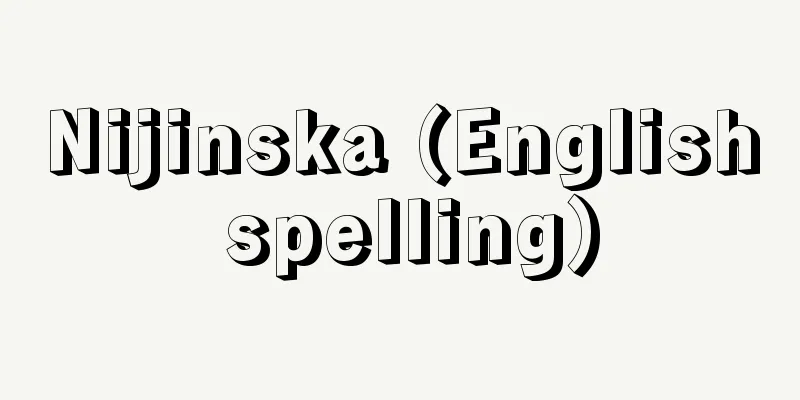Poet Laureate

|
A title of honorary poet in England. Since the Middle Ages, in Europe, there has been a tradition that many famous poets have been protected by the royal family or aristocracy. In Renaissance England, this title was given to poets selected by universities as the leading poet of the time, such as Skelton, but it was not until 1616 that the title was established as a position related to the royal family as we see it today, when Ben Jonson was selected by James I. Dryden was officially appointed in 1668, and was awarded a pension of 300 pounds and wine from the Canary Islands. After that, Southey, Wordsworth, Tennyson, and others were selected, and in the 20th century, R.S. Bridges, Masefield, Day Lewis, Betjeman, Ted Hughes, and others were selected. However, the Poet Laureate is not necessarily a great poet, and other than the above, most of them are only known as minor poets who are almost unknown. Currently, Imperial Household Officers are paid a fixed annual salary and are recommended by the government for life when their predecessor dies. They were required to compose poems for royal celebrations, funerals, national events, and important events, but this is now optional and not necessarily required. [Kazuo Ueda] “British Poet Laureate” by Hirokazu Koizumi (1998, Sekai Shisosha) [References] | | | | | | | | | | |Source: Shogakukan Encyclopedia Nipponica About Encyclopedia Nipponica Information | Legend |
|
イギリスの名誉ある詩人の称号。中世以来ヨーロッパにおいて、名声ある詩人は、多く王室もしくは貴族によって保護されてきた伝統をもつ。ルネサンス期イギリスでは、たとえばスケルトンのごとく、当代第一の詩人として諸大学によって選ばれた詩人にこの称号は贈られたが、今日みられるように王室に関係ある詩人職として制定されたのは、実質的に1616年ジェームズ1世によってベン・ジョンソンが選ばれたことに始まる。公式には1668年にドライデンが任命され、年金300ポンドおよびカナリア諸島産ぶどう酒を授かった。その後、サウジー、ワーズワース(ワーズワス)、テニソンらから、20世紀に入っては、R・S・ブリッジズ、メースフィールドを経てデー・ルイス、さらにベッチマン、テッド・ヒューズらが選ばれている。しかし、桂冠詩人かならずしも大詩人ではなく、以上にあげたもののほかは、その多くがほとんど無名に近い群小詩人として名をとどめるにすぎない。現在は宮内官として一定の年俸を支給され、前任者が死亡したとき、政府によって推薦される終身制をとっている。王室の慶弔あるいは国家的行事や重大事に際して、詩をつくることを義務としているが、いまはそれも任意となり、かならずしも義務づけられていない。 [上田和夫] 『小泉博一著『イギリス桂冠詩人』(1998・世界思想社)』 [参照項目] | | | | | | | | | | |出典 小学館 日本大百科全書(ニッポニカ)日本大百科全書(ニッポニカ)について 情報 | 凡例 |
>>: Cervicitis - keikannen (English spelling)
Recommend
Baillarger, J.
...It was the German psychiatrist Kraepelin who m...
Minamoto no Kanemasa
?-? A government official and poet in the late He...
Mount Giboshu
...The main part of the new Daisen is Mt. Misen, ...
Ludwik
... The formation of the Sejm can be considered t...
《Positivismus und Idealismus in der Sprachwissenschaft》 (English notation)Positivismus und IdealismusinderSprachwissenschaft
…For him, language is nothing but an expression o...
Prosthetic engineering
…Some of these areas have already shown some prog...
Kempen, P. van (English spelling) KempenPvan
…The orchestra was named after the building where...
QSO - QSO
《 quasi-stellar object 》⇒ Quasar Source: About Sho...
Kanetsuri [Hot Spring] - Kanetsuri
A hot spring in Unazuki Town, Shimoniikawa County,...
magnetic hysteresis
…In ferromagnetic materials, the overall magnetiz...
Ibuki [town] - Ibuki
A former town in Sakata County in northeastern Shi...
Felt-tip pen
A type of quick-drying writing implement. There ar...
Colbertism
...Based on his basic idea that the amount of cur...
Mr. Haga
A medieval samurai family in Shimotsuke. They call...
Public facilities
Facilities operated and managed by the national or...









